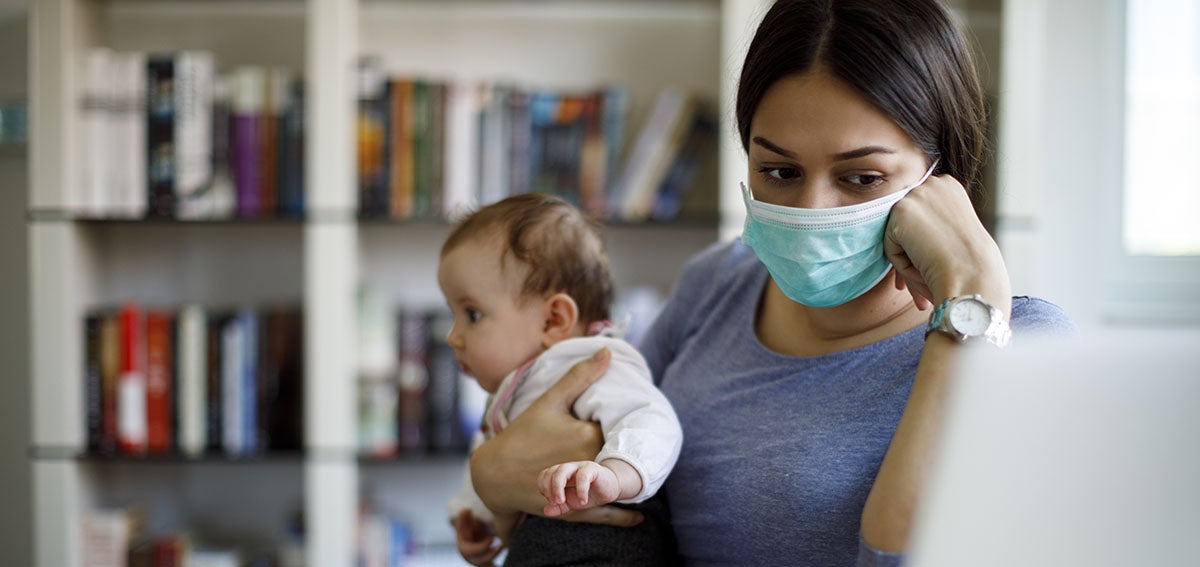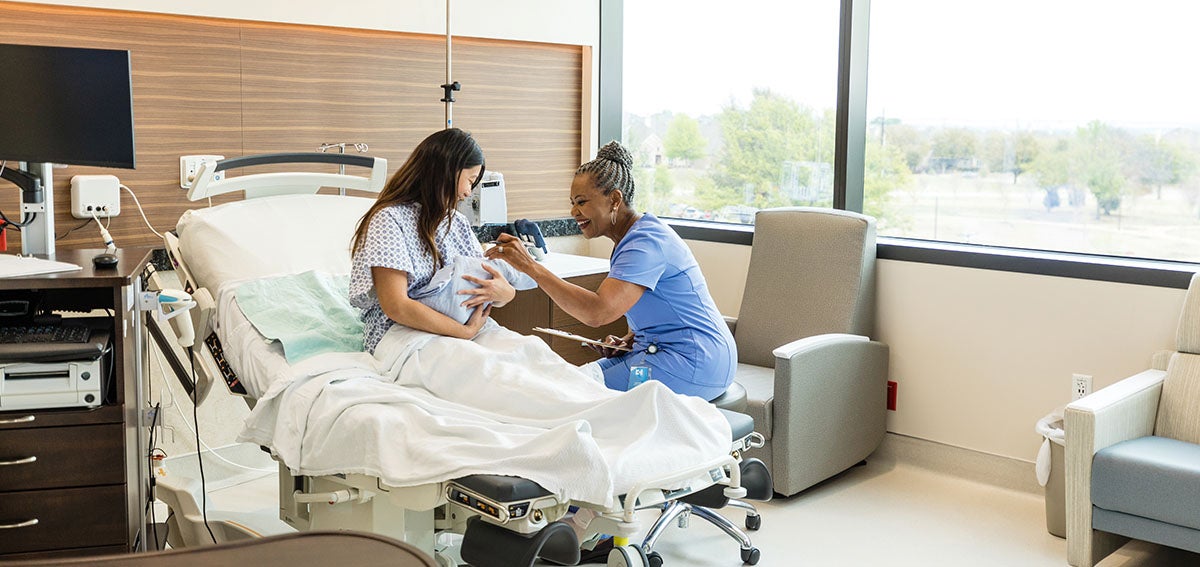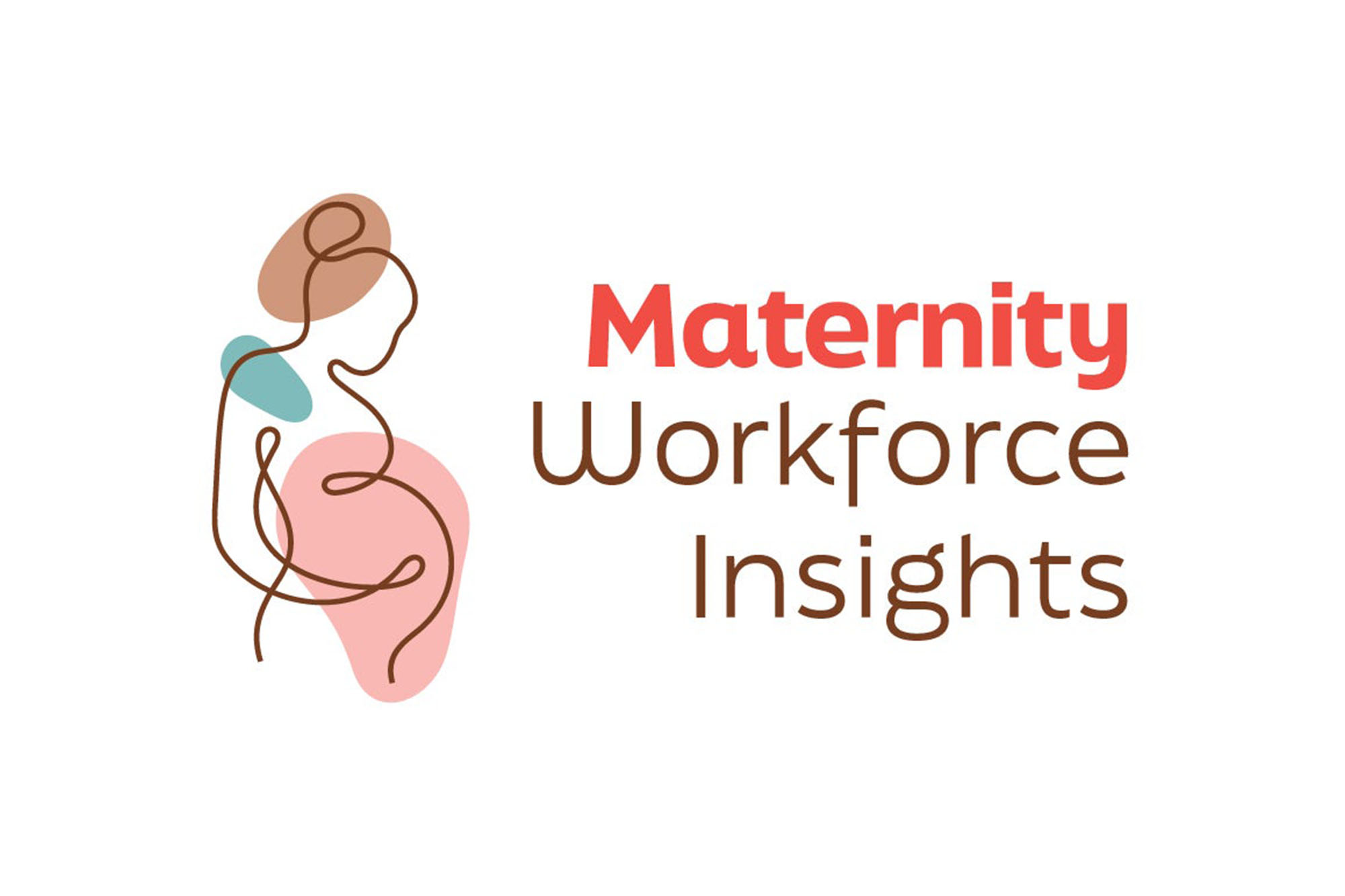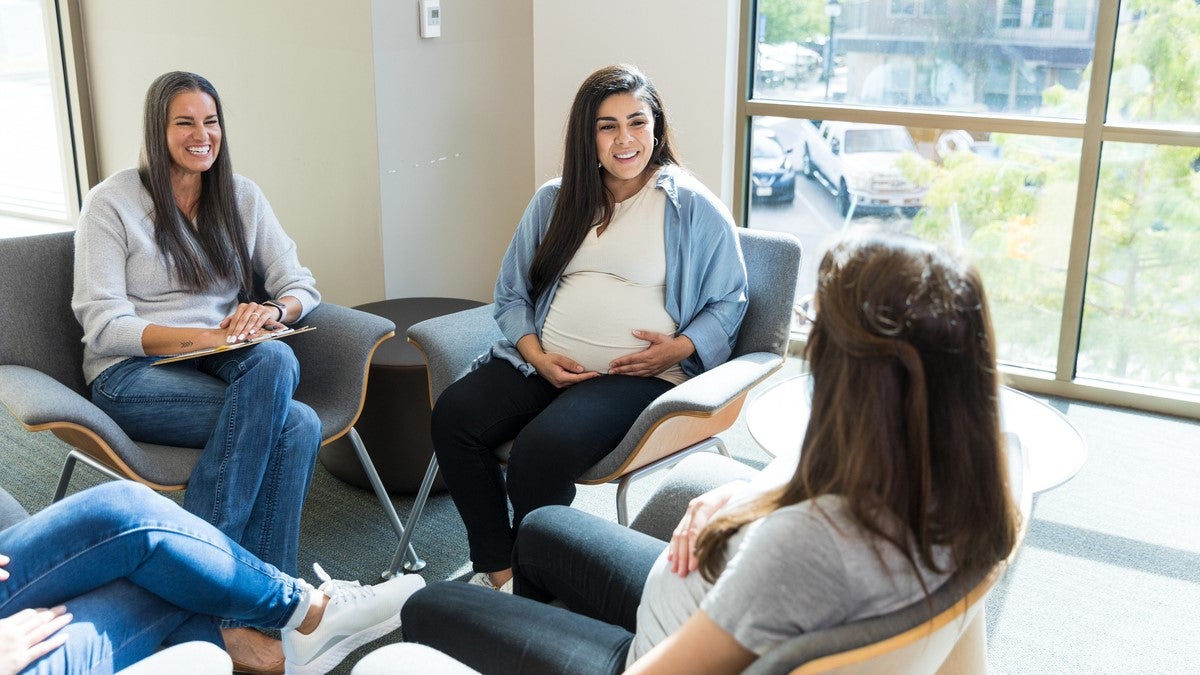
Throughout her pregnancy, Altagracia Mejía was nagged by feelings of anxiety and depression. Mejía, who lives in the Panorama City neighborhood of Los Angeles, gave birth to her daughter Alexa in September 2020. Within two months, the new mother’s feelings shifted to thoughts of suicide.

“In my most lucid moments, I ask myself over and over again what is happening to me,” Mejía told Los Angeles Times reporter Selene Rivera. The 26-year-old immigrated to the US from El Salvador four years ago in search of a life without the poverty and violence that marked her home country.
“I am supposed to be happy, resplendent, and full of energy,” Mejía said of her life as a new parent. “But nothing is as they paint it on television or social networks.”
After seeking care, Mejía was diagnosed with postpartum depression, a serious and long-lasting form of depression. The illness is distinct from postpartum psychosis, which is much more rare and severe than postpartum depression. Postpartum depression is treatable with therapy, medication, or a combination of both. Without treatment, the illness can become debilitating, with consequences including a higher risk of suicide and failure to bond with the child.
According to the California Department of Public Health, one in five California women had postpartum depression during or after giving birth in 2018, the most recent data available. That translated to 100,000 cases a year, Rivera reported.
“Black and Latinx women experience the highest percentage of depressive symptoms (PDF) of all racial/ethnic groups during both the prenatal and postpartum periods,” the report said. Mejía was screened for depression and anxiety after Alexa’s birth, but “many of those afflicted are not being screened for postpartum depression,” Rivera reported.
In Mejía’s case, her condition was undetected despite the screening. She sought help on her own from Maternal Mental Health Now, a nonprofit organization that advocates for screening and treatment of prenatal and postpartum depression in Los Angeles County.
Treatment providers who spoke to Rivera said they’ve seen increased demand for their services during the pandemic, as have providers and researchers in states across the US. Clinicians and researchers are worried that women such as Mejía are falling through the cracks of the health care system as the pandemic drags on.
Calls for Help Doubled
This year between January and April, the Cedars-Sinai Reproductive Psychology Clinic received twice as many calls from women seeking help for postpartum anxiety and depression as it did during the same period a year earlier, Eynav Accortt, PhD, a psychologist at the clinic, told Rivera.
“Women have been under more stress from the pandemic,” she said. New parents often lean on friends and family to help with the tumultuous transition of having a newborn child. That social support often wasn’t available during the height of the pandemic. Concerns about their own health and the health of their newborns compounded new parents’ anxiety. “They fear getting sick or their babies getting sick,” Accortt said.
Misty Richards, MD, MS, a director of the Maternal Outpatient Mental Health Services program at UCLA, told Rivera she’s seen a 30% increase in postpartum depression cases during the pandemic.
A panoply of news reports suggests the same trends are happening in Arizona, Florida, Iowa, Texas, and other states. A woman in Glasgow, Scotland, posted a tearful TikTok video about her postpartum depression. The film went viral recently, with more than three million views and 50,000 comments. “Postpartum depression is real,” said the new mother, Juana Witty. “I didn’t know I had it. I could really use some friends.”
Wanjiku Njoroge, MD, an infant/preschool psychiatrist at Children’s Hospital of Philadelphia, told WHYY health reporter Sabrina Emms that she’s worried about new mothers and the potential long-term consequences of parenting through a pandemic. “Our immediate concern is not just the mom’s mental health but how that mom’s health is impacting their baby,” Njoroge said.
Njoroge belongs to IGNITE, a multidisciplinary research group that surveyed pregnant women who lived in the Philadelphia area in April and May 2020 and followed their experiences in pregnancy, delivery, and postpartum. While the group is still collecting data and has not published all its findings, preliminary results suggest that the pandemic increased rates of mood disorders such as depression among women. The pandemic, they found, also worsened preexisting disparities.
Racial and Ethnic Disparities Loom Large
Disparities in postpartum depression predate the pandemic, and research from IGNITE suggests that the pandemic has made matters worse.
The CHCF 2021 California Health Care Almanac reported startling disparities in prenatal and postpartum depression. “Many Californians suffer from prenatal or postpartum depression, which can negatively impact the birthing person and child,” the report noted. “About one in four Black birthing people* (PDF) reported experiencing symptoms of prenatal depression, and more than one in six reported experiencing symptoms of postpartum depression, in 2018 and 2019.”
In the journal Psychiatry Research, an analysis of the IGNITE survey echoed that finding. “Black women specifically had higher rates of depression and anxiety, and they also had different COVID-19-specific worries when compared to non-Latinx, white women,” said Njoroge.
“Black mothers were more likely to worry about their job security, the lasting impacts of COVID-19, pre- and postnatal care, and physically giving birth,” Emms wrote. “They also reported a greater likelihood of having their employment negatively affected, and more concerns about a lasting economic burden.”
Racism also affects Black people’s mental health, as Kelly Glass noted in a Washington Post article on the mental health of Black birthing people during the pandemic and in the wake of George Floyd’s murder. A 2015 study in the American Journal of Public Health, which looked at the impact of the Florida murder trial of George Zimmerman, who fatally shot unarmed black teenager Trayvon Martin, found current events exerted a strong effect especially on Black women’s mental health.
Women of color are among the most affected in part because many are uninsured or their plan doesn’t cover therapy, Richards, the UCLA maternal mental health expert, told the Los Angeles Times.
“Evidence suggests that some Latina mothers may hesitate to seek help because of stigmas associated with mental illness, as well as cultural expectations surrounding motherhood and the traditional roles of women in Latin societies,” Rivera reported.
Policy Changes Intended to Help Depressed Mothers
California does have laws that require clinicians to screen birthing people for mental health issues. The law also requires insurance companies to develop a maternal mental health program. A related law requires hospitals to train clinicians who interact with birthing people to recognize the signs and symptoms of postpartum mental health issues. They must also educate birthing people about mental health issues they might encounter postpartum and how to seek help if they need it. Both laws have been in effect since 2019.
Last year, California’s Medi-Cal program extended the normal 60-day period of post-pregnancy care coverage for mothers who are diagnosed with a maternal mental health condition to up to one year after giving birth.
In this year’s budget, California extended coverage from 60 days to one year for all eligible postpartum people. Under the American Rescue Plan Act, states that extend postpartum coverage will be reimbursed by the federal government for up to five years starting in April 2022. Emily Dossett, MD, a clinical assistant professor of psychiatry and behavioral sciences at USC’s Keck School of Medicine, told Rivera that even though screening women for postpartum depression is a state law, “there is still a lack of resources available to do so, which puts doctors in a bad situation.”
“If health experts are not aware of the postpartum screening laws . . . and if there are not enough staff to refer women or therapists, there will always be mothers who will disappear into the cracks without any treatment,” said Dossett. Since the pandemic began, Dossett said, she’s seen a 25% increase in referrals from mothers in need of therapy.
Mejía found ongoing support at Maternal Mental Health Now, where she attends support groups to help cope with her depression. She told Rivera that “no mother has to suffer from postpartum depression alone. Families must support their mothers. . . . This mood disorder is real.”
* We use the term “birthing people” to recognize that not all people who become pregnant and give birth identify as a woman or a mother.
Authors & Contributors

Heather Tirado Gilligan
Heather Tirado Gilligan is a journalist who has written for publications including Slate, The Nation, CNN, and the Washington Post. Previously, she was executive editor of the California Health Report, a news nonprofit covering disparities in health and access to health care. Heather received a master’s degree in journalism from UC Berkeley and a PhD in English from Rutgers University, where she studied race in American culture.





